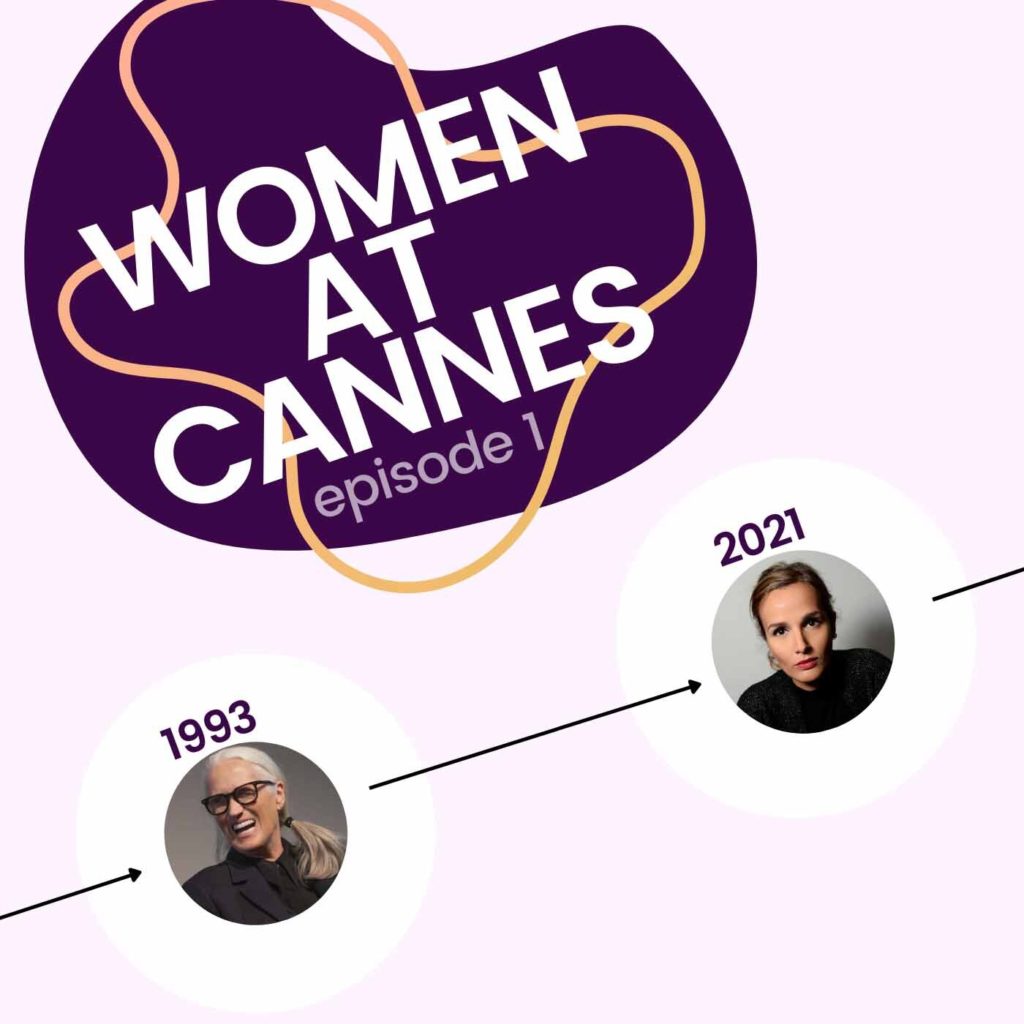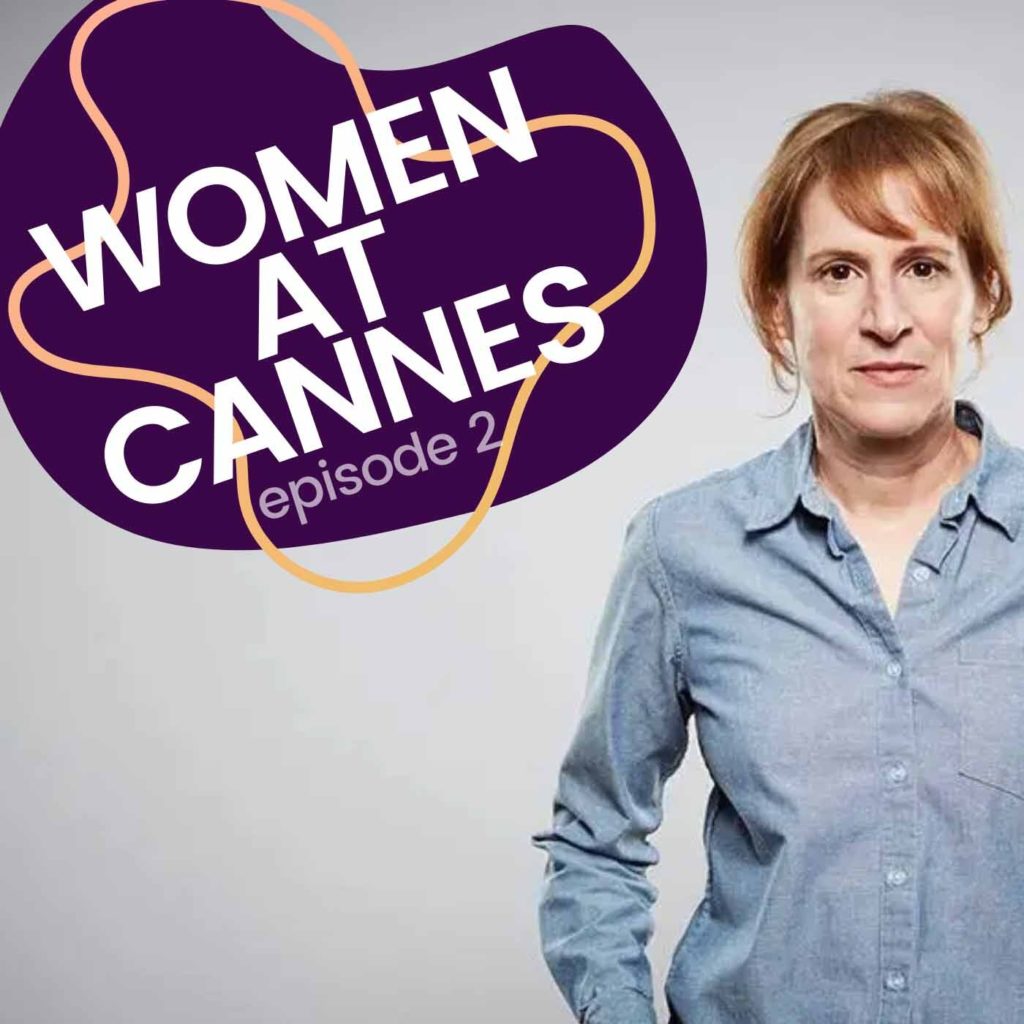Chie Hayakawa’s Plan 75 is a plea for empathy amidst broken systems that leave the most vulnerable and elderly. The film premiered in the Un Certain Regard sidebar at Cannes 2022 and is Japan’s entry for Best International Film at the 2023 Oscars.
Read Alex Heeney’s interview with writer-director Chie Hayakawa
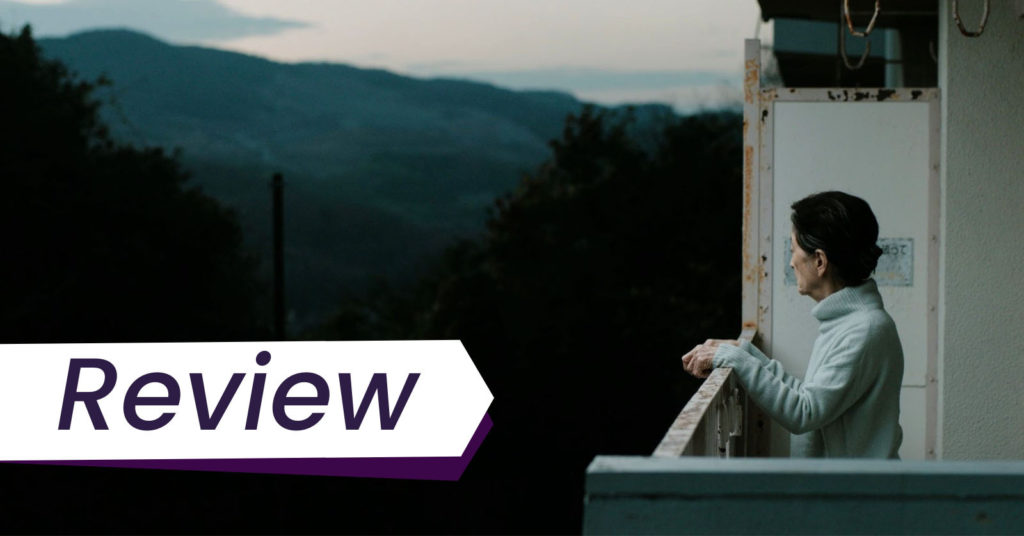

Listen to the podcast season on Women at Cannes
Over the course of five episodes, we celebrate achievements of women directors at the Cannes Film Festival in Competition and beyond, both in 2022 and in the past — and take the festival to task for its history of sexist programming.
Discover one film you didn’t know you needed:
Not in the zeitgeist. Not pushed by streamers.
But still easy to find — and worth sitting with.
And a guide to help you do just that.
Tender and devastatingly unsentimental, Chie Hayakawa’s feature debut, Plan 75, is a plea for empathy and a damning indictment of a world that, more and more, sees people as disposable. Set in a dystopian Japan where the government has made assisted dying accessible to anyone who is at least seventy-five years old through “Plan 75” — regardless of their medical conditions — the world of Plan 75 is depressingly close to the euthanasia programs already happening in the world.
In Canada, the Medical Assistance In Dying (MaiD) program has increasingly become an excuse for to kill off vulnerable people. While it’s impossible to get funding to help manage chronic illness, assisted suicide is very accessible and well-funded. In 2023, mental illness will be an allowable reason for accessing MAiD. Meanwhile, access to mental health services could take years. During the COVID-19 pandemic, Sweden deliberately helped elderly people with COVID to their deaths while preserving the lives of the young. Specifically, the only way to receive oxygen versus life-ending morphine was to be non-disabled enough to live independently.
Three protagonists
In Plan 75, Hayakawa follows three protagonists to represent the different sides of the Plan 75 scheme. Our perspective character is 78-year-old Michi (an exquisite Chieko Baisho). We watch her get beaten down bit by bit by the system until Plan 75 seems like the only solution.
She meets twentysomething Hiromu (Hayato Isomura) as her case officer, who helps her fill out the paperwork. We follow him through his job as he slowly realises it’s predatory. His job involves making park benches uncomfortable to sleep on (a widely used strategy around the world to make homelessness more inconvenient). He also holds events to prey on the most vulnerable to persuade them to end their lives. And thus, end their burden on society.
Finally, there’s Filipino migrant worker, Maria (Stefanie Arianne), who discovers there’s better pay in disposing of the euthanised elderly’s belongings of Plan 75 than in caring for the elderly at a nursing home.
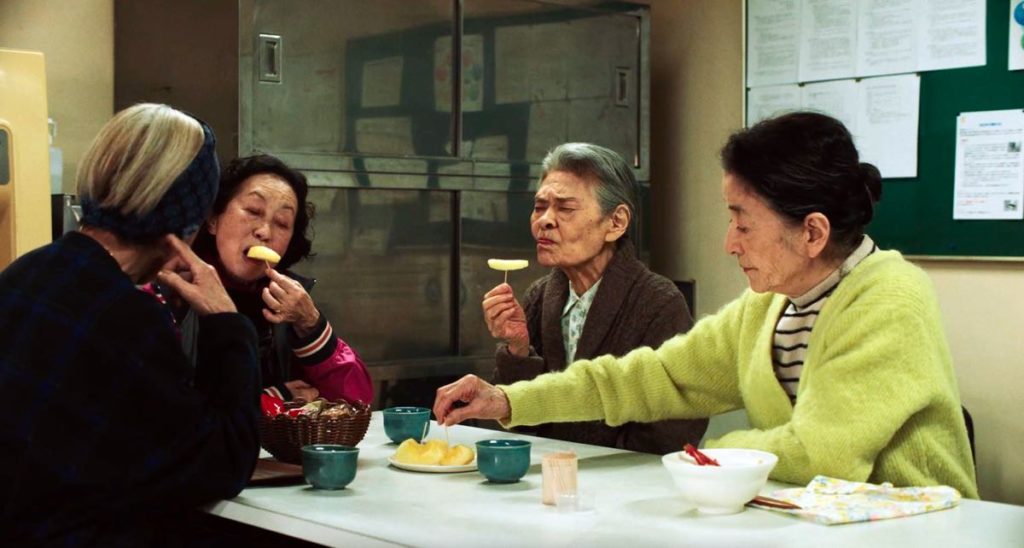
Losing home
In an early scene, a wide shot from afar follows Michi struggling up the small hill to her apartment building. She checks her mail, only to discover it’s all junk mail. Her apartment, though small and modest, is warm and homey, bathed in natural light and full of plants. It’s full of the belongings of a life lived, if a lonely one.
As Michi gets more hopeless throughout the film, Hayakawa increasingly shoots Michi’s apartment with less and less sunlight, later and later in the day. The next time we see Michi’s journey home, she’s glimpsed in a wide shot through a fence. It’s a subtle visual metaphor for how her choices are collapsing around her. She’s just lost her job as a hotel maid. The hotel doesn’t want the liability of employing seniors who could get injured at work. When she walks into her building, she’s about to encounter a notice saying her building is due for demolition. Unemployed in a world that already discriminates against the elderly, finding housing and a new job seems hopeless.
Death by a thousand papercuts
For Michi, it’s death by a thousand papercuts. Hayakawa doesn’t show these cuts happening, just the defeated face and body of the woman experiencing them. A friend’s injury at work, which causes Michi to get laid off, happens offscreen. We hear it, but don’t see it. We never see Michi get fired. Instead, we watch her packing up her belongings, trying to figure out what to do next. Her colleagues talk idly about what they might or might not do. She replies, “As you know, I’m alone in the world. I have to find another job.”
We don’t see Michi’s arduous journey to try to find housing, only her last resort. We (and she) overhear the results of her inquiry in a phone call she’s not part of. Hayakawa positions us behind the real estate agent so we’re close to the phone call, looking at Michi’s defeated face. When Michi calls a friend about a job the friend was offered but didn’t want, she gets cut off abruptly. It’s a bad time, she’s told. Nobody seems able or willing to help Michi.
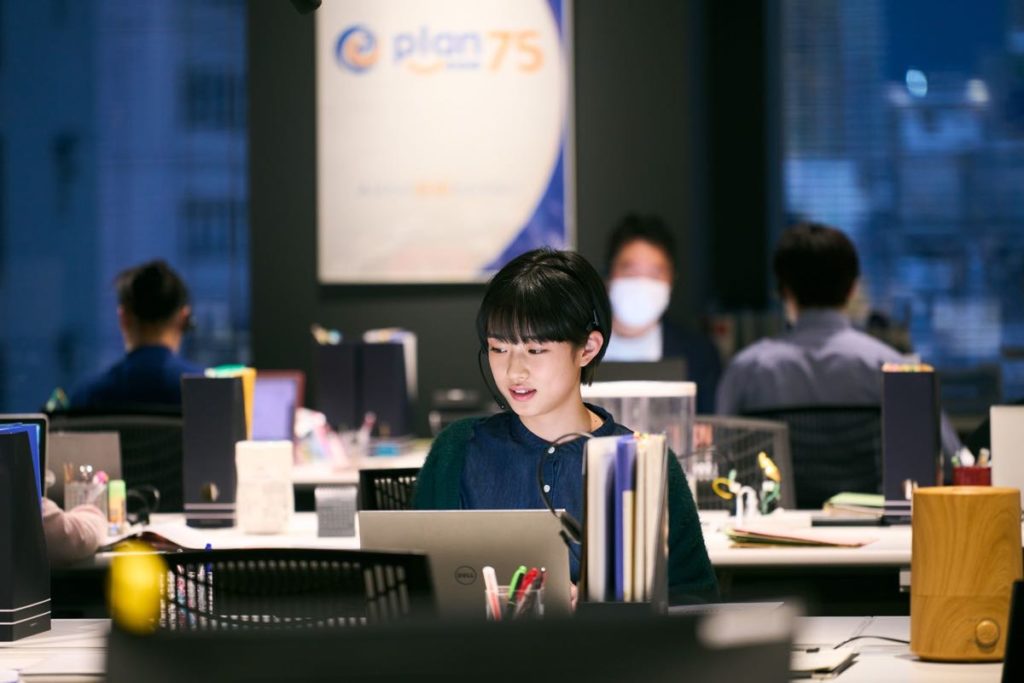
Emotional support through Plan 75
Ironically, the one place Michi does find emotional support is through the Plan 75 program. When she wants to sign up, a friendly case worker in a busy, well-staffed office helps her with the paperwork. Meanwhile, she can’t even fill out the paperwork to apply for welfare, after resigning herself to the unhappy prospect. She’s confronted with a single out of service electronic kiosk. A sign states there are no more consultations for the day.
As part of Plan 75, she’s assigned a caseworker, Yoko, who calls her regularly. But the conversations are only fifteen-minutes and are abruptly cut off. The caseworker also informs Michi that they have a 24-hour hotline. Of course, nobody is there to support the elderly if they don’t plan to imminently kill themselves. It’s through these phone calls that we learn about Michi’s backstory, the things she’s endured but never talks about. We later learn the purpose of these calls is to prevent people from getting cold feet and deciding to live.
Coming face-to-face with the consequences of Plan 75
During his work with Plan 75, Hiromu comes face to face with his estranged uncle (Taka Takao) who wants to die. Uncle Yujkio Okabe shows up in Hiromu’s office to fill out the paperwork on his seventy-fifth birthday. Through reconnecting with his uncle, Hiromu starts to question his work at Plan 75. Are they helping people or preying on the most vulnerable? Is Plan 75 a convenient scheme to help the young look away from cruelty toward the elderly?
If Michi’s existence seemed lonely and wareing, Hiromu’s uncle’s is worse. He seems totally alone, without even the semblance of friends. His apartment so sparse, it looks like he’s just moved in. He’s pretty much already given up by the time he meets Hiromu again. They’re both too politely withdrawn to broach the distance of many years; plus, that would be counter to Hiromu’s job.
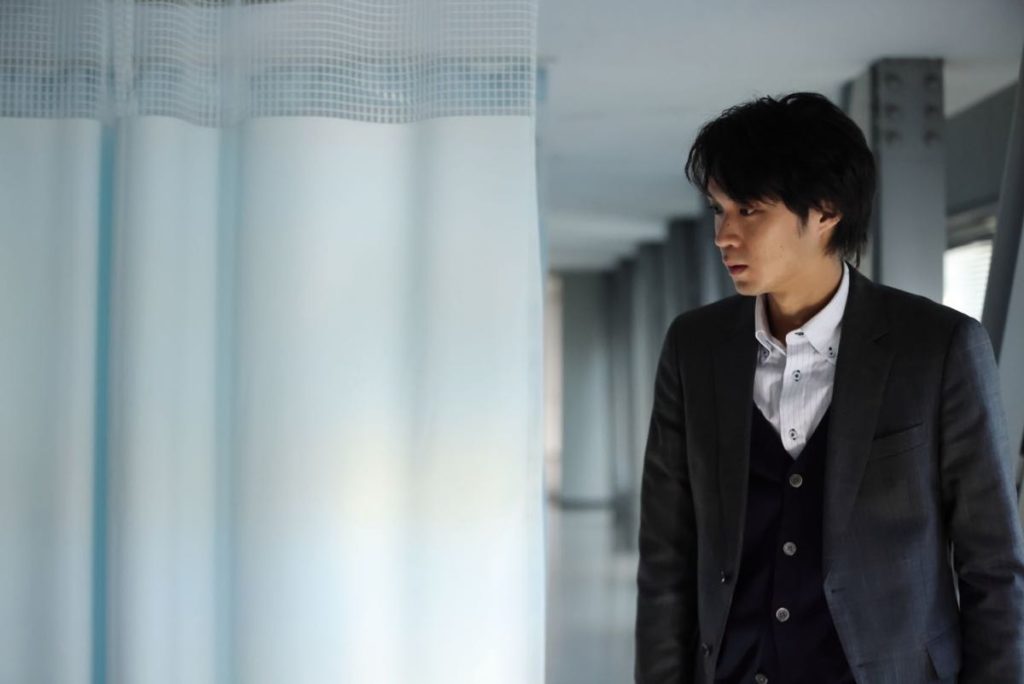
World building in Plan 75
Hayakawa’s world building in Plan 75 is exquisite and understated, often informing us of new edicts for Plan 75 through radio broadcasts in the background. Through her three protagonists and the people they meet along the way, Hayakawa constructs a whole complex system — and industrial assisted suicide complex — and imagines how it would work. State-sponsored mass murder is always in the mundane details, as films like Quo Vadis, Aida? and A Radiant Girl have shown so incisively.
Hayakawa shows this, too, but by seeing the people keeping Plan 75 going, she also demonstrates the emotional toll this job has on them. As a care worker, Maria would smile at work with the knowledge she was helping people; as a Plan 75 scavenger, she’s miserable all the time, but making enough money to help pay for her daughter’s medically necessary surgery. Near the end of the film, we get private glimpses of Michi’s caseworker and how much she hates herself for what she’s doing. But we also know, from Michi’s house hunt, that it’s a brutal world out there, and these young people making Plan 75 happen are just trying to get by.
Echoes of Ken Loach to the current pandemic
It’s the mark of an excellent film that when watching Plan 75, I thought of Ken Loach’s work, especially his Palme d’Or Winner I, Daniel Blake, which is often more explicitly preachy than Hayakawa’s understated plea for empathy. The stolen scenes between Michi and her young caseworker recalled Ikiru, but here, it’s the state that’s predatory rather than the individuals. In Ikiru, the state was incredibly efficient at not helping anyone with anything useful, and in Plan 75, it’s just as efficient at ensuring the elderly die soon. Ultimately, the power of Plan 75 is in how much it lets us care for the characters, and offers them the opportunity to at least begin to care for each other, while presenting us a world that makes this as difficult as possible.
In a world where we’re regularly sacrificing the elderly and disabled for a “return to normal” which includes mass deaths and pandemic denial, Plan 75 seems incredibly timely. But the idea behind it predates the pandemic, and as the film’s grammar constantly reminds us, the elderly’s woes are often out of focus and easy to ignore. The pandemic just made it more obvious that we’ve been looking away for a long time.
You could be missing out on opportunities to watch great films like Chie Hayakawa’s Plan 75 at virtual cinemas, VOD, and festivals.
Subscribe to the Seventh Row newsletter to stay in the know.
Click here to subscribe to the Seventh Row newsletter.

